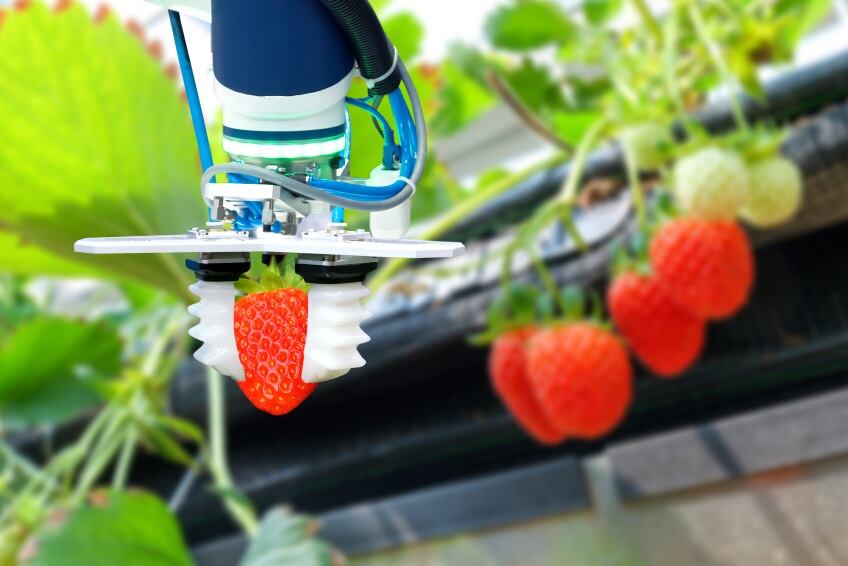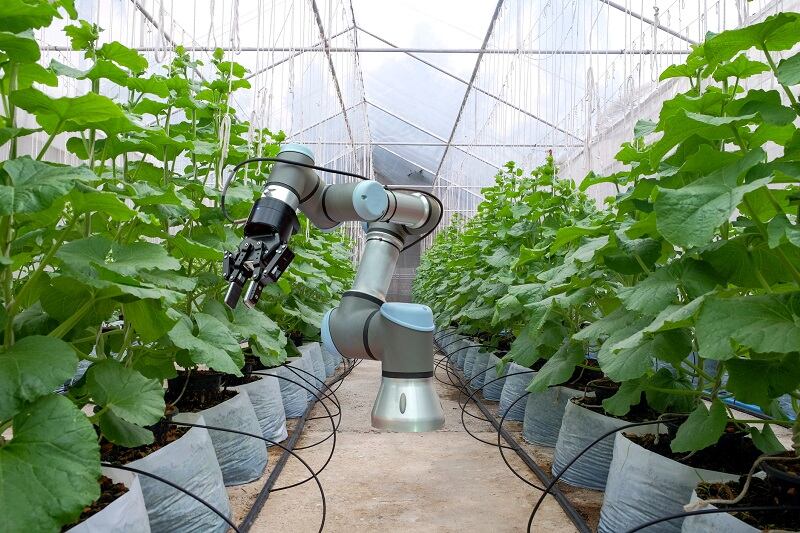Innovate UK, the country’s publicly funded innovation agency, has awarded £2.5m to ‘Robot Highways’, a project that aims to ensure industry sustainability and address labour shortages, as well as the global need to reduce the environmental impact of food production.
Announcing the award, Prentis commented: “It’s great to see investment in these outstanding ideas which will help us tackle the farming industry’s greatest challenges, from achieving net zero emissions to investing in sustainable alternative protein for animal feed. Farming has never before been at the centre of such exciting and forward-looking innovations.”
The Robot Highways project has been developed by a consortium of companies including Berry Gardens, the UK’s largest soft and stone fruit cooperative, and Clock House Farm. Robotics and autonomous systems developer Saga Robotics and the Manufacturing Technology Centre Ltd, which specialises in packhouse automation, and communications and data handling group BT, will bring their technological expertise. The University of Lincoln and the University of Reading are also working on the project.
The aim of Robot Highways is to develop what the project participants described as ‘the biggest known demonstration of robotics and autonomous technologies’. The development will be hosted at Clock House Farm in Kent.
“Clock House Farm Ltd is very excited to be part of the consortium and the demonstration farm for the project, which will help us with our ambition to be an innovative leader in our sector,” Oli Pascall, Clock House Managing Director, said.
Answering labour, carbon and efficiency challenges
The trial is setting out to deliver a vision for the future of soft fruit growing. The consortium wants to use robots that will assist growers by carrying out essential, energy-intensive, physical farm processes such as picking and packing fruit and treating crops to reduce critical pests and diseases.
The robots themselves will be powered by renewable energy.
The project is ‘key’ to industry sustainability by reducing sector reliance on seasonal labour, estimating a 40% reduction in the labour required. Robot Highways will also provide solutions for moving the sector towards a carbon zero future. With an estimated 20% reduction fruit waste, 90% reduction in fungicide use, ‘huge’ reduction in use of fossil fuel across all farm logistic operations and a 15% increase in farm productivity.
Artificial intelligence and machine learning technologies will be harnessed, and crucial improvements will be made to telecommunications infrastructure in rural settings.
Scaling innovative approaches
Richard Harnden, Director of Research at Berry Gardens Growers, said the project will bring ‘many technologies’ developed in smaller scale research projects together. “We have been partnered with the University of Lincoln and Saga Robotics Ltd for the past six years and this project will demonstrate at scale our jointly developed new capabilities in robotics for the UK soft fruit industry.”
Berry Gardens are also part of two additional research projects awarded government investment through Innovate UK. The first is a project that will combine existing technologies with novel plant science, computer vision and new algorithms to assess the external and internal qualities attributes of blackberries and apply imaging to distinguish ripeness, alongside displaying a processed spectral image using AR glasses in real-time.
The second is a project which aims to integrate nutrient demand models and AI-based sensors with precision-dosing rigs to improve resource use and productivity, and reduce waste and emissions in commercial raspberry production.
“At Berry Gardens we are dedicated to investing in the future of soft fruit growing and all of these projects are a testament to that. Our on-going funding of research into robotics is essential to ensure the industry continues to grow and develop to meet consumer demand for good quality soft fruit, grown sustainably and efficiently,” Harriet Duncalfe, Chairman of Berry Garden’s Grower Research Advisory Panel, noted.
“Not only could robotics help growers carry out essential work more efficiently, it will also help reduce our reliance on seasonal labour, all whilst moving the sector towards a carbon zero future.”




